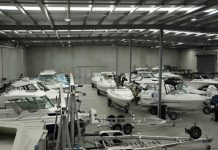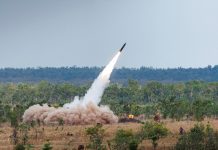
The Australian Fashion Council (AFC) and Epson Australia have announced a new initiative to explore the development of an AI-powered smart factory that could modernise the country’s fashion manufacturing sector.
The two organisations are calling for expressions of interest from qualified research partners to undertake a six-month feasibility study that would shape a detailed blueprint for a pilot facility.
The proposed smart factory would integrate digital design and textile printing, automation, and artificial intelligence to enable on-demand, customisable garment production.
The goal is to create a more agile and sustainable local manufacturing ecosystem capable of addressing current industry challenges such as supply chain disruptions, skills shortages, and overproduction.
AFC Chief Executive Officer Jaana Quaintance-James said the initiative could play a critical role in Australia’s efforts to rebuild sovereign manufacturing capacity in the fashion and textiles sector.
“This smart factory initiative addresses multiple challenges facing Australian fashion manufacturing,” Quaintance-James said.
“The feasibility study will validate whether a smart factory pilot program can be commercially viable while delivering broader benefits as part of an integrated advanced manufacturing ecosystem.”
The announcement comes shortly after the AFC revealed plans to develop Australia’s first National Manufacturing Strategy for the fashion and textile industry.
Craig Heckenberg, Managing Director of Epson Australia, said the collaboration represents a step toward empowering local brands through advanced manufacturing capabilities.
“Epson’s digital textile printing technology can help build a more sustainable world and improve lives,” he said.
“Our partnership with the AFC and this blueprint and initiative will help local brands, big and small, have access to smart manufacturing capabilities that match their scale and ambition.”
According to research commissioned by the AFC, every $1 million invested in bringing fashion production back to Australia could deliver an estimated $1.2 million in economic returns.
These would come through job creation, technology adoption, reduced reliance on imports, and strengthened supply chains.
The feasibility study will examine several key areas, including market viability, technical and operational requirements, financial modelling, and social and environmental impacts.
Findings from the study are expected to inform the development of a pilot facility and a broader implementation plan, which will include investment partnerships, training programs, and governance structures.
“This isn’t just a research exercise—it’s the foundation for action,” Quaintance-James said. “We’re aiming to deliver a clear, strategic roadmap that benefits the entire fashion manufacturing value chain.”
The initiative also aims to create educational partnerships to support digital skills training, foster regional industry growth, and encourage greater female participation in tech-driven manufacturing roles.
Research partners with experience in innovation, fashion and textile manufacturing, stakeholder engagement, and financial analysis are encouraged to apply. Expressions of interest must be submitted by Sunday, 15 June 2025.
For more information, interested parties can contact Sam Delgos, Industry Relations Manager at the AFC, at sdelgos@ausfashioncouncil.com or 0405 566 313.



















